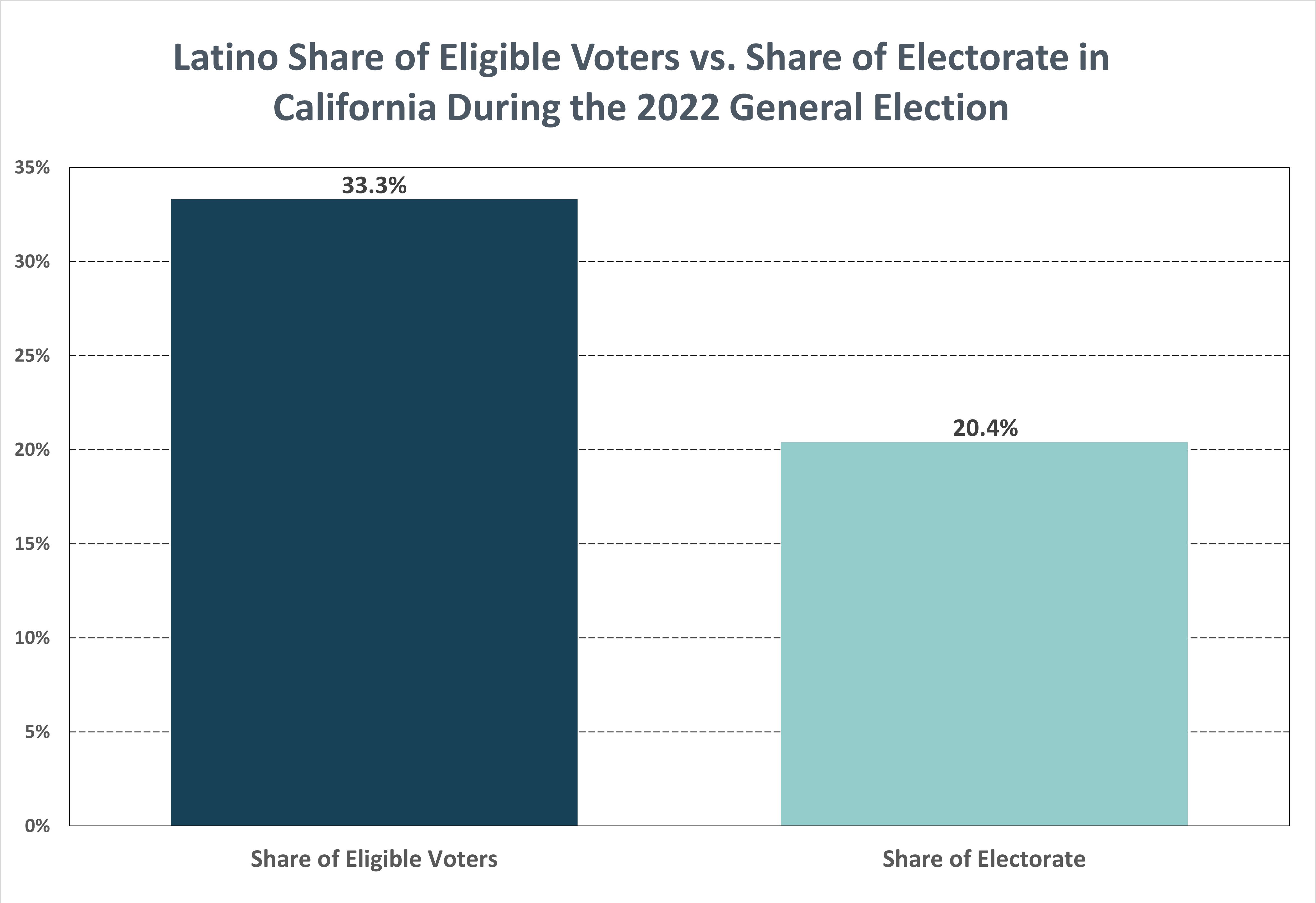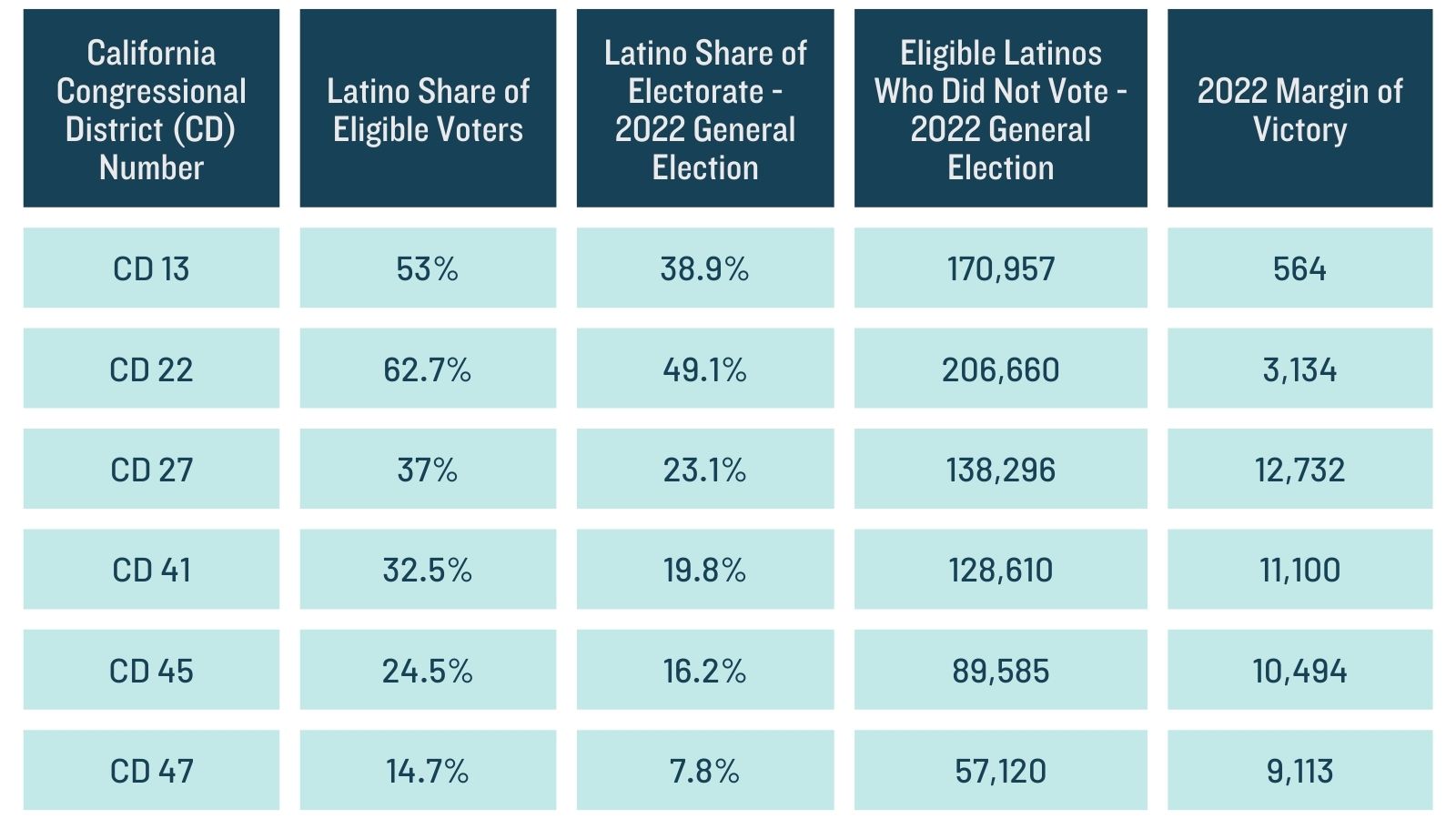
Celebrating Latino Heritage Through Greater Participation and Representation
Latino Heritage Month is an opportunity to celebrate Latino history and culture in California. Latinos are the largest ethnic group in our state, accounting for 40% of residents. Latinos have contributed enormously to all facets of our state’s success. Today, California’s 15 million Latinos will play an outsized role in defining our future.
In recent years, we’ve seen important gains in Latino political power in our state, including its first elected Latino U.S. senator; record numbers of Latinos in the state legislature, including the speaker of the Assembly; and the highest-ranking Latino in the history of the U.S. House of Representatives. The state also has Latinos in other state constitutional offices, and the state Supreme Court Chief Justice and the California State University Chancellor are Latinas.
While Latino political power is growing, we also know that Latinos remain underrepresented in the electorate and in elected office. In 2022, Latinos made up one in three eligible voters, but only one in five of actual voters.

A lack of Latino voter turnout can have huge impacts on important races. Take, for example, the numbers in California’s six “toss-up” congressional districts in the 2022 general election, shown below. Latinos who did not vote are many times the margin of victory in these districts, underscoring why Latinos should be considered a critical voting bloc. And this year, Latino voters could once again play a pivotal role in determining control of the House of Representatives.

Two recent polls from Haas Jr. grantees shed some light on why so many Latinos are not showing up at the polls:
- The Latino Community Foundation (LCF) found that Latinos are not being engaged in campaigns ahead of November. More than half of Latinos (52%) had not been contacted by a political campaign, and that number jumped to 63% among Latino immigrants.
- Another poll from the National Association of Latino Elected and Appointed Officials (NALEO) Educational Fund found that 59% of Latinos had not been contacted about voting in the 2024 election. In Spanish speaking households that number increased to two-thirds (66%).
There is still work to do to ensure all eligible California Latino voters make their voices heard this election.
Arturo Vargas, NALEO Educational Fund CEO
When Latino voters are ignored during election season, it can result in some potential voters not getting the information they need to vote. For example, according to the NALEO poll, more than a third (34%) of Latinos reported they did not know where to find information about voting by mail, and one in five (21%) mistakenly thought they could vote online.
There are things we can do to make voting more accessible for Latinos in future elections. For example, a coalition of California organizations formed the California Language Access Workgroup to develop a plan to educate policymakers about opportunities to improve election-related language services. A fifth of eligible Latino voters have limited English proficiency, and some live in counties that don’t provide local materials in Spanish. A more inclusive voting access reform bill was vetoed by Governor Newsom this year, but the coalition will continue its education efforts. Another way to boost voting and civic engagement among Latinos is to ensure that Latino-serving organizations have the resources they need to engage the community year-round in conversations about the issues that are most important to them, train future leaders, and educate voters on how to vote.
The Haas, Jr. Fund is proud to support Latino-led organizations across the state that are engaged in this vital work. Building a more inclusive, equitable, and just democracy requires a focus on the unique needs and interests of California’s diverse Latino population. We know that California’s future will be stronger and more prosperous if Latinos have a voice in decisions that affect their lives. To honor Latino history and culture, we should honor Latino political power with representation and do more to ensure Latinos turn out and are heard in November and every election.
